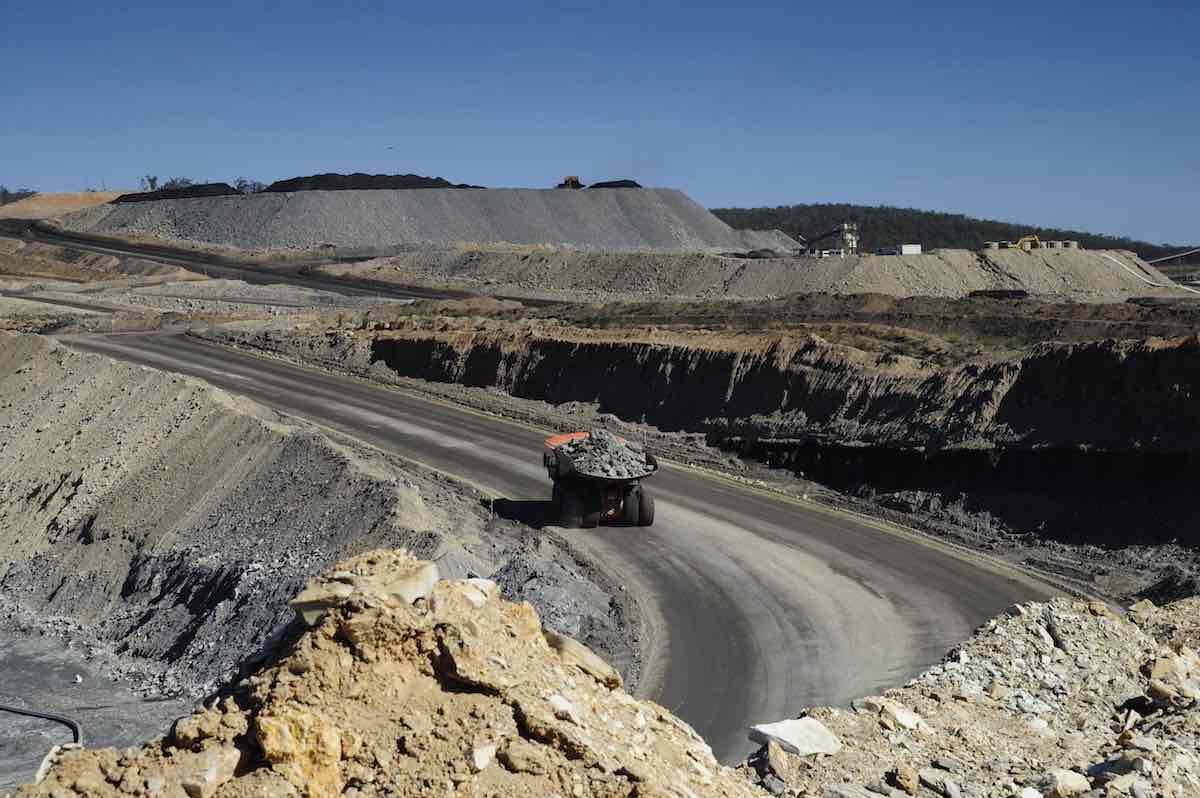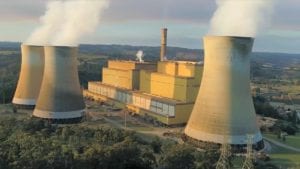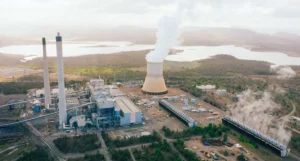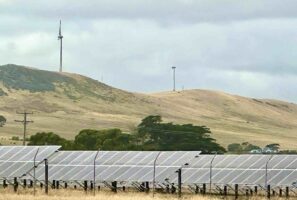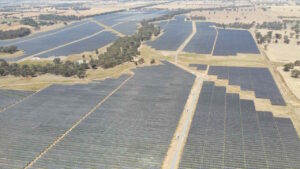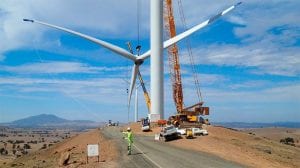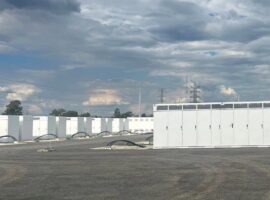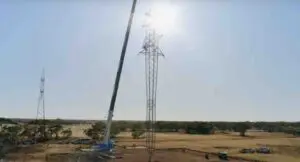Global efforts to tackle climate change are undermined by the continued expansion of fossil fuels. The need to get off coal, oil and gas has never been more urgent, and fossil fuels are the root causes of climate change.
We have known this for many decades, yet governments in aggregate are still planning to double fossil fuel production by 2030.
The Australian government has mastered this contradictory dance, committing to net zero emissions by 2050 yet simultaneously approving and funding new coal, oil and gas projects.
Australians need to be calling on our federal government to commit to the Fossil Fuel Non-Proliferation Treaty, a new international mechanism to finally phase out fossil fuels.
The Fossil Fuel Non-Proliferation Treaty first arose from the Pacific Islands, who called for the first Treaty to ban new coal mining and embrace the 1.5 degree Celsius goal set at the United Nations (UN) Climate Change Conference in Paris in 2016.
This acknowledged that, although the Paris Agreement was widely seen as a success in its ability to garner international commitments for climate change, the final text had no mention of phasing out fossil fuels.
Now the Treaty is gaining momentum, with eight nation states, 2234 civil society organisations and 95 cities and subnational governments already supporting and endorsing. The European Parliament has also just called on governments to work on a Treaty as part of its demands for the upcoming COP28 Climate Change Conference.
I am generally an optimist and tend to be believe that our world will soon kick our addiction to fossil fuels and avoid the worst climate change projections.
Sometimes I wonder if this is a form of functional denial or toxic positivity, a way to avoid falling into a pit of despair about global inaction on climate change. Perhaps it is.
Yet another reason for the optimism comes from observing the momentum of societal, cultural and technological change that has happened at different scales across the planet over the past 20 years. Ideas, technologies, movements and policies that were unthinkable 2 decades ago are now mainstream or even surpassed.
I have always liked the concept of the Overton Window when considering how big change happens. The Overton Window was described by American Joseph Overton, and describes the ideas, policies and actions that are acceptable to the mainstream population at a given point in time.
If I think back to the early 2000’s, the idea that governments might commit to net zero by 2050 seemed highly improbable. At the time, net zero by 2100 was more politically palatable and activists campaigning for faster reductions were often dismissed as unrealistic and even immoral for the impacts it would have on jobs.
Now net zero by 2050 is mainstream, adopted by our own government, yet is increasingly feeling inadequate to avoid runaway warming of the planet.
The idea that the Australian government might sign a fossil fuel non-proliferation treaty may seem highly unlikely today. With Australia’s history as a climate laggard, even a climate villain in international negotiations, and being the world’s third largest exporter of fossil fuels, such an outcome could easily be seen as utopian. I have had many discussions within the climate movement itself that deem it so unlikely that it maybe isn’t even worth pushing for.
Yet in the context of the Overton Window, what is politically feasible in this moment may not be the case in five years, even one to two years’ time.
The Black Summer bushfires drastically changed the Overton Window for climate action, before it was dampened somewhat by Covid-19. The next widespread extreme event Australia experiences may also shift the dial in what is considered an appropriate federal response to climate change.
It’s not just pressure from our own country that may force Australia’s hand in signing a Fossil Fuel Non-Proliferation Treaty. The political leverage that the Pacific Islands has over Australia in this moment should not be underestimated.
Australia is seeking to co-host the 2026 United Nations Climate Change Conference (COP31) with the Pacific, and in doing so it needs the support of our island neighbours. These countries have already made clear that they want Australia to ramp up its climate ambitions, with strong commitments to end fossil fuel subsidies and stop funding and approving new coal, oil and gas activities.
For many years the climate movement has focused on climate solutions, acknowledging that to call for a shift away from fossil fuels needs feasible alternatives. Arguably (and it is tiresome how much it is argued!) these alternatives now exist and energy systems around the world are being designed for a rapid transition.
Even the relatively conservative International Energy Agency has mapped out how to achieve 100% renewable energy by 2050. Similarly, the Australian Energy Market Operator has mapped out pathways that could see our National Electricity Market meet demand from 100% renewable electricity by as early as 2025 with the right investments and policies.
Despite readily available solutions, increasingly ambitious climate change commitments and science demanding ever urgent action, fossil fuel use is still expanding. A total of 151 countries have pledged to achieve net zero emissions, yet in aggregate, governments still plan to produce double the amount of fossil fuels in 2030 than what would be consistent with keeping warming to 1.5 degrees Celsius.
This is the key message of the United Nations 2023 Production Gap report, which it states is “a startling indictment of runaway climate carelessness.” This highlights the political and often psychological disconnect that governments, businesses, and even individuals have between climate action and continued expansion of coal, oil and gas.
According to the Australia Institute, the Australian government’s forward estimates sees a record $57.1 billion support for the fossil fuel industry through tax breaks and subsidies. Since May 2022, the federal environment minister has approved four new coal mines or expansions with 147 million tonnes of lifetime emissions.
This is why a Fossil Fuel Non-Proliferation Treaty is so important. A new international mechanism that addresses the root cause of the climate crisis. It squarely focuses attention on the need to cut the cord with fossil fuels once and for all.
It squashes, head-on, the idea that you can tackle climate change yet still open up hundreds of new coal mines and gas fields. It frames fossil fuels as something we don’t want, like nuclear weapons, and ideally situates those who lobby for their continued use and expansion as violent actors on global society. It provides a stronger legal basis to avoid dismissing climate impacts across national environmental laws.
We know global treaties work, even if they are not perfect. We have had successful ones in the past such as treaties on nuclear weapons, human rights and drug trafficking. In many cases Australia has signed them without too much fuss.
So how do we get there? We build momentum by engaging with as many organisations, governments, individuals and organisations to endorse the treaty. We keep demanding that climate commitments are hollow if they don’t also include commitment to a treaty to end fossil fuels.
We use every opportunity to shift the Overton Window, and when the window does shift we know what we need to ask for in that moment. Then, in 20 years time, we will look back and wonder why it was ever so hard to get the political will for such an obvious response to our greatest global crisis.
Rob Law has worked on climate change for over 20 years for a range of not for profit organisations, governments and research institutes. More information on the Fossil Fuel Non-Proliferation Treaty can be found here.

